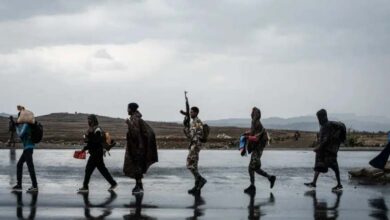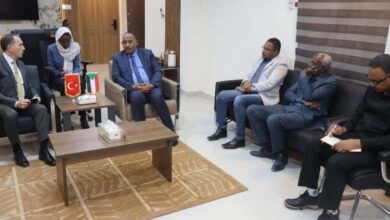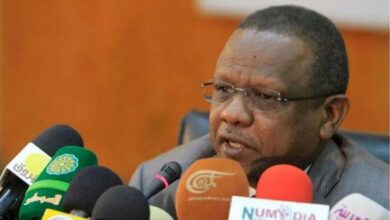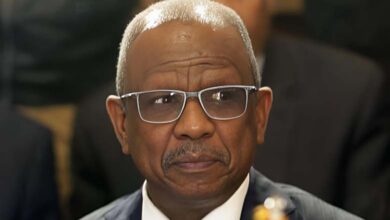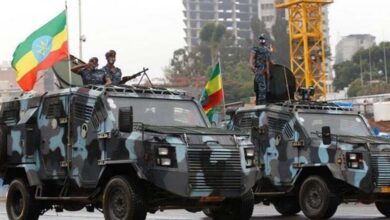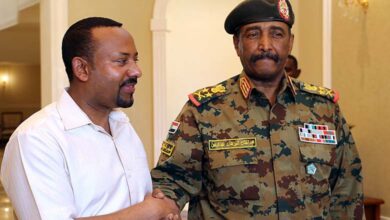Al-Burhan Between Failed Alliances and External Pressures: A Nation on the Brink of Collapse
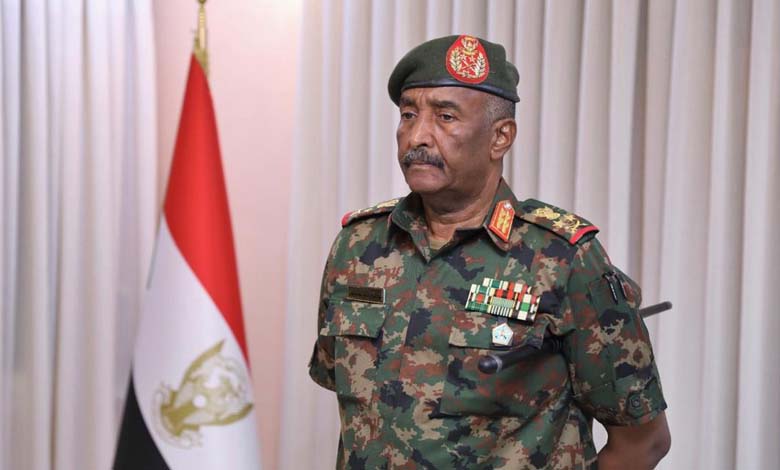
Sudan is experiencing one of the most complex and ambiguous periods in its modern history. The ongoing conflict is no longer a simple confrontation between the army and the Rapid Support Forces; it has become a manifestation of the state’s disintegration and the erosion of its institutions. What is unfolding today is a struggle for influence within the military establishment itself, where political calculations intertwine with ideological loyalties, reflecting the loss of national direction and the collapse of the idea of a unified state.
-
Al-Burhan’s siege brings hunger and slow death
-
Sudan in the Grip of Corruption: Soaring Prices and Dengue Fever as a Mirror of al-Burhan’s Government Failure
Multiple political sources indicate the existence of secret understandings between the Rapid Support Forces and a faction within the army led by Abdel Fattah al-Burhan, seeking a political settlement that would exclude the Islamist movement once allied with al-Burhan in power. These developments reveal the depth of division within the military leadership and al-Burhan’s realization that his political survival now depends on distancing himself from the Islamists, who have become a liability rather than an asset, threatening the very cohesion of the institution he leads.
In western Sudan, growing accusations target the army for deliberately abandoning the armed movements in Al-Fashir, leaving them to face their fate without support or reinforcements. This behavior is widely interpreted as a reflection of a discriminatory mindset within the command structure, one that distinguishes between geographical and ethnic components. Such policies not only weaken the internal front but also fuel the long-standing sense of marginalization that has historically driven Sudan’s conflicts.
-
Soaring prices and epidemics: Al-Burhan’s corruption traps Sudan
-
The Muslim Brotherhood controls the war, while Al-Burhan is merely a façade… The Foundational ‘Sudan Alliance’ unveils the hidden realities
Meanwhile, the city of Port Sudan, which presents itself as the temporary capital, is witnessing the near-total collapse of its healthcare system. Epidemics are spreading, mortality rates are rising, and medical institutions are paralyzed. Field reports indicate that the army is stockpiling medicines and medical equipment to support its war effort, while civilians suffer from an acute shortage of basic necessities. This starkly exposes the contradiction between the rhetoric of “defending the state” and the reality of starving and slowly suffocating it.
The picture grows darker with increasing reports of corruption involving senior military officials accused of smuggling and selling Sudanese gold for personal gain in collusion with foreign actors. These cases are no longer exceptions but the norm, exposing a full-fledged war economy managed from within state institutions — where gold, the country’s greatest wealth, has become a tool to fund networks of influence rather than revive the collapsing economy.
-
Al-Burhan Seeks to Contain Potential Crisis over Chemical Weapons Use
-
Al-Burhan Reshapes the Political Landscape: A Power Grab Undermines the Balance of the Juba Agreement
On the ground, reports continue to emerge of repeated army withdrawals in Kordofan and the rapid fall of Al-Fashir, amid sharp disagreements between the army and the Islamist movement over military strategy. These divisions highlight the depth of fragmentation within the armed forces, which have lost their internal discipline and are now mired in power struggles rather than engaged in a unified national mission.
At the same time, talk of upcoming leadership changes within the army suggests an escalating internal conflict among competing factions. Some interpret these shifts as al-Burhan’s attempt to consolidate his position, while others see them as evidence of the disintegration of decision-making structures and the growing rivalry among competing power centers ruling the country through coercion and fear.
-
Hemetti Launches Harsh Attack on Al-Burhan and the Muslim Brotherhood… Speaks on Crisis with Egypt
-
Al-Burhan’s Government Investigates Use of Chemical Weapons to Evade Responsibility
Regionally, diplomatic sources report that al-Burhan has made concessions to a neighboring state concerning maritime border demarcation and granted it the right to manage and operate Port Sudan in exchange for continued political and military support. This move constitutes a serious breach of national sovereignty, proving that the military leadership no longer negotiates on behalf of Sudan but merely to ensure its own survival in power.
In the background, the Islamist movement remains the most dangerous actor operating from the shadows. Its leaders, who failed in governance, continue to reject any political solution, pushing instead for a military option that will drain the country’s remaining resources. For them, the war represents an opportunity to regain power, even if it means the complete collapse of state institutions and the reignition of ethnic and tribal conflicts.
-
From Al-Bashir to Al-Burhan: The Muslim Brotherhood Continues to Wreck Sudan
-
The Islamic Movement’s Retreat and al-Burhan’s Silence: Questions Surround the Political and Military Cover Behind the Strategic Strikes in Port Sudan
At the same time, growing reports indicate that Egypt is exerting pressure on al-Burhan and the Sudanese army in exchange for continued military and diplomatic support, urging Khartoum to abandon its historical claims to the Halayeb and Shalatin regions and to adopt a more flexible stance on the Nile water issue. Such coercion reduces Sudan to a subordinate role and reinforces the perception of an army acting as a tool of regional powers rather than as a guardian of national interests.
The Sudanese scene today reveals a nation teetering between an army that has lost its legitimacy and an Islamist movement seeking an impossible comeback. Both claim to speak in the name of the homeland while betraying it — one trading sovereignty for power, the other preaching jihad at the expense of the state. The citizen alone bears the cost of these narrow power struggles, in a country collapsing under the weight of its leaders’ ambitions.
-
Precision Strikes Shake Islamist Camps in Port Sudan: Mass Escape and Suspicious Silence from al-Burhan
-
Mysterious Airstrike in Port Sudan Reveals Involvement of Foreign Experts and Iranian Arms… Silence from al-Burhan and the Islamic Movement Raises Questions
Sudan will not be saved by generals or preachers, but by a new civil national project capable of breaking free from the domination of weapons and dogma. Only a foundation built on justice and citizenship — not allegiance and obedience — can restore the state. Without this transformation, Sudan will remain a battlefield between a desperate army and aimless Islamists, sharing the ruins of a dying nation.


